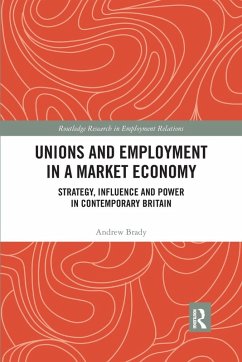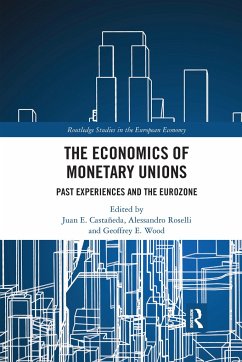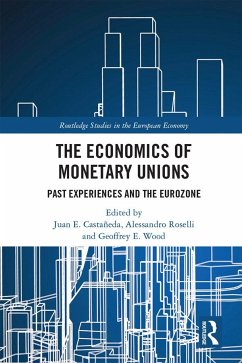
Unions and Employment in a Market Economy
Strategy, Influence and Power in Contemporary Britain
Versandkostenfrei!
Versandfertig in 1-2 Wochen
167,99 €
inkl. MwSt.
Weitere Ausgaben:

PAYBACK Punkte
84 °P sammeln!
This book will evidence how trade unions were able to offset environmental constraints through a progressive focus on political action, despite diminished power in the Labour Party's structures and the wider economy.














